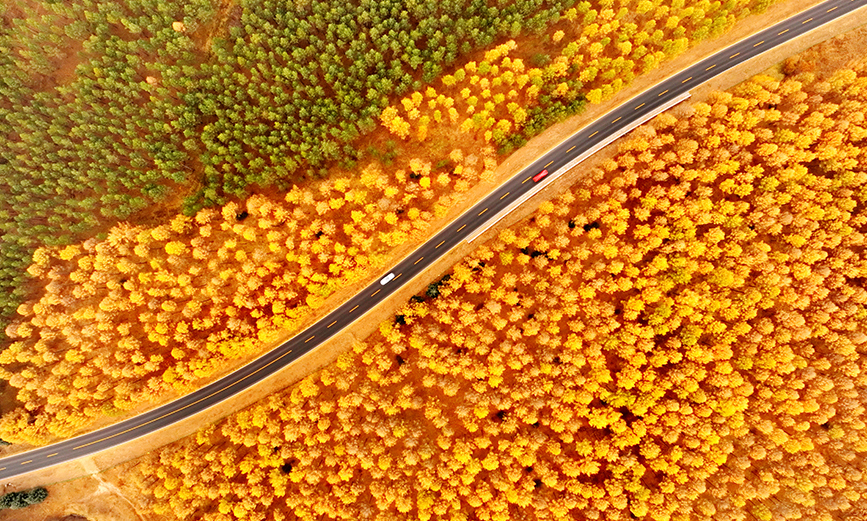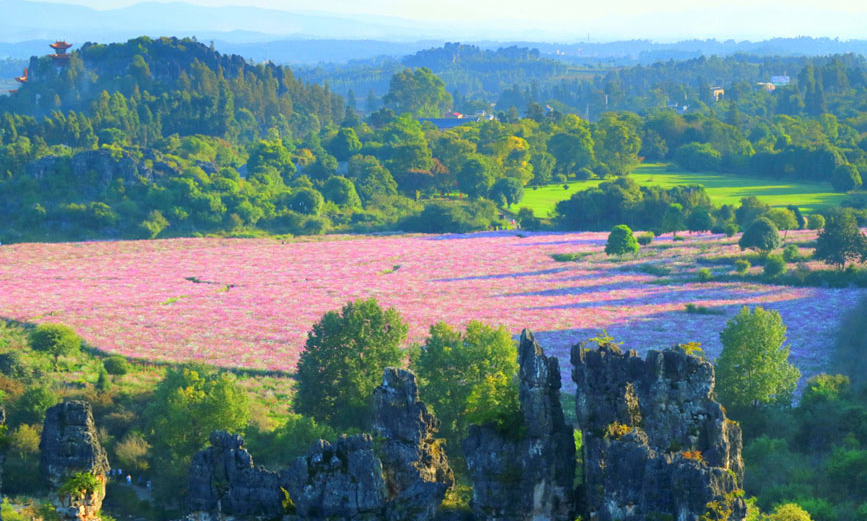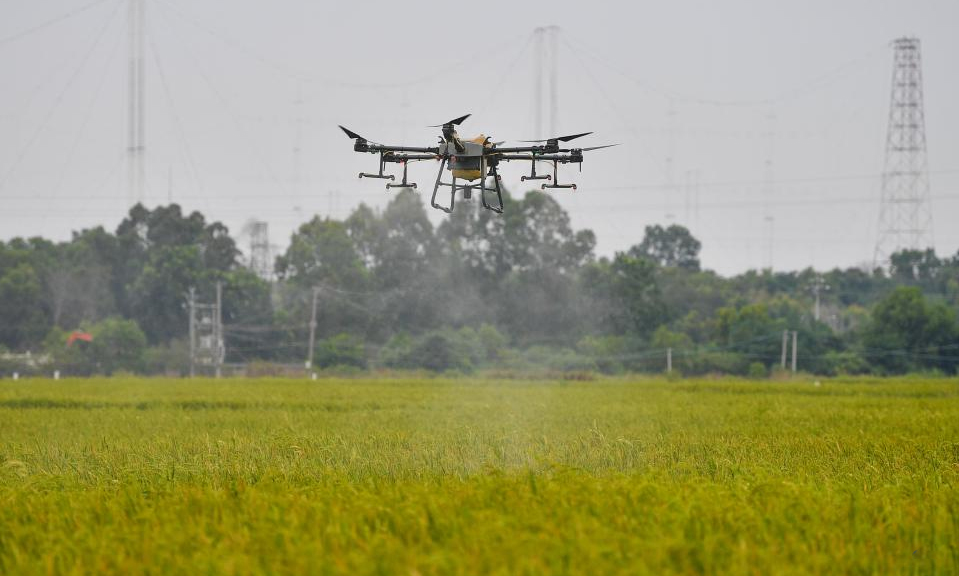Farooq Chaudhry: Dance with China, dance for the world
Located in the south corner of the bustling London Borough of Islington, Sadlers’ Wells Theatre is known as one of world’s most renowned venues for dance productions. The theatre hosted numerous dancing sensations, including Yang Liping’s Under Siege in 2016 and her adoption of Pina Bausch's The Rite of Spring in 2017. Behind these master productions is well-known creative producer Farooq Chaudhry.
Born in Pakistan and raised in the UK, Chaudhry became a dancer at the age of 22 and, after retirement from his dancing career in 1999, co-founded Akram Khan Company. Since then, he has been an active force in promoting a global and open environment for dancing in the UK through Social Entrepreneurship. In both professional and personal life, Chaudhry has a deep connection with Chinese dance and culture. With nearly 40 years’ experience in the dance industry, he continues to promote collaboration and communication between China and the UK today.
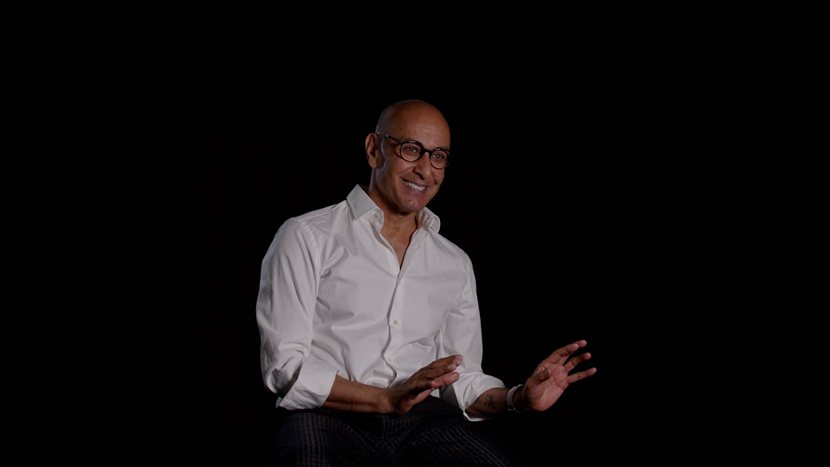
Farooq Chaudhry
Losing oneself and finding oneself in dance
People’s Daily Online: For many years you have been known as the producer who uses dance to bridge China and the UK at Sadler’s Wells Theatre but not many people know the beginning of your story. Could you share with us how your dance career started?
Chaudhry: I've been coming to Sadler’s Wells for 44 years since the age of 17, and I'm now almost 62. I went to university at 21 where I took my very first dance class. And when I took the class, I discovered this sensation of losing myself and finding myself exactly at the same time. And then I took out of that class, I went to the dean of the university, and I said, I want to quit. I'm going to be a dancer.
I was 22 years old, and I went to the London Contemporary Dance School, and then I was a dancer from 1986 to 1999.
People’s Daily Online: At what point in your career did you come into contact with Chinese dance? And what was your first impression?
Chaudhry: When I started working with Akram Khan in 2000, I was very curious about what was happening in China in terms of dance. So I went over in 2004 through a British Council trip just to meet many Chinese artists in Shanghai, Beijing, Guangzhou. I met independent artists, I went to the Beijing Dance Academy and I visited very established dance artists and dance companies. It was incredibly diverse, and I thought, wow, you talk of China being one culture but actually it's an incredibly diverse culture.
And you really appreciate diversity a lot through movement. What I discovered with this this, this incredible physical intelligence that this culture has that's kind of very old but also very new. And I think I just saw that the most when I was in Beijing Dance Academy, moving from Chinese classical ballet to contemporary to Mongolian to Tibetan.
Chinese dance is an incredible fluidity and ephemeral style. You know, there's almost an effortless sense of power. You don't see the power but you feel it. And because it's quite ancient, there's a really interesting way how the kind of traditional languages have found a way to connect very strongly with the modern languages in the West.
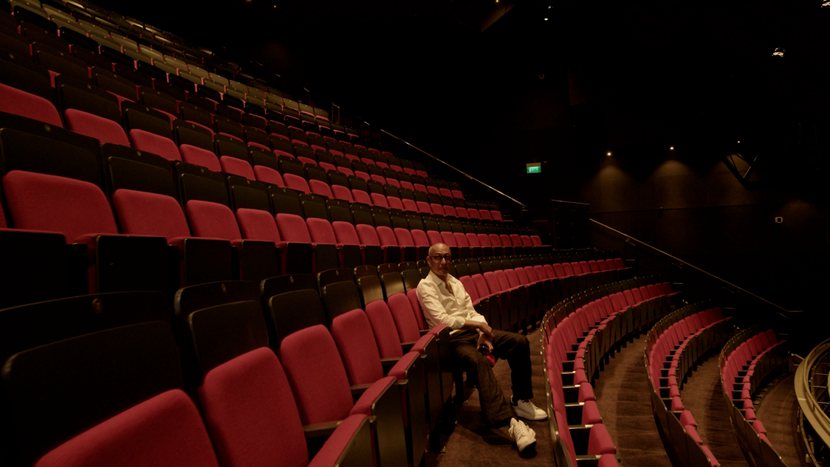
Farooq Chaudhry
A journey to the west
People’s Daily Online: After an initial collaboration between Akram Khan Company and the National Ballet of China in 2007 which toured the world for two to three years, you brought Yang Liping to Sadler’s Wells and that was a huge success. How did this project come to fruition?
Chaudhry: When I brought Yang Liping here in 2016 and I was really nervous because you know you're bringing this very special person into a completely unfamiliar environment. I've had a long association with Chinese artists before Yang Liping, so I was naturally very curious. So, I took a plane, I went to Kunming where she works and lives, and we were in her studio.
I met her, this amazing woman, she's almost like an empress. She walks in the room, regal, graceful, and then she laughs like no one I've ever known and she has this incredible spirit. And I was really fascinated by her. And then she was working on this production called Under Siege, which is this very ancient story of the transference from the Western Chu to the Han.
I was really hoping that the audience would love the work and they did. The theatre was 50 percent full of Chinese audiences, which is amazing because you never see that many at Sadler’s Wells and then for people to just be so rapturous enthusiastic about what they've just experienced and that made me feel immensely proud.
People’s Daily Online: Could you share with us your upcoming project and what’s special about it?
Chaudhry: Three years ago, I decided I wanted to work with a collaborative team from China in the UK on the retelling of the Liang Zhu story. And one thing I didn't mention so far, actually, is that my partner is from Taiwan, so my connection with China goes back 40 years, even for family. I heard about the story of Liang Zhu from my partner. And she told me about this story, and she said, wherever Chinese people go the story of the butterfly lovers follows them.
And as you know, the story of Liang Zhu is not fixed. And this is a very beautiful thing about Chinese culture, in fact, that some of these stories allow to evolve and not become revered like a Bible. The story has evolved depending on the dynasty and the meaning of the dynasty and what was important in that dynasty. We realized that to tell this Chinese story, we have to find a new language for today. A new language of music, a new language of movement. A new language of visual scenery.
And I was very lucky that I was working with Tim Yep, the very successful, famous Chinese designer because he has a rich understanding of Chinese culture. And the choreographer, Disha Zhang. Last October, I went to China to do some workshops for three weeks with this with about six to eight dancers who were going to be in the production.
And every day we explored certain themes. We explored the theme of connection and break and connection. We explored the theme of desire for knowledge because we know Liang Zhu is a complex story. It's not just a simple case of a girl not being able to go to school and falling in love with one of her fellow students. It's very nuanced.
It's about duty, it's about knowledge, it's about self-knowledge, it's about discovering desire and also the knowledge that you have to sacrifice something to gain something new. And so it's actually not a tragedy as is Romeo and Juliet is. It's a story of hope because actually to have somebody, they have to reincarnate their bodies as butterflies become something new.
All men are brothers
People’s Daily Online: It’s no easy task to introduce a foreign production to a new audience, let alone one that is deeply rooted in Chinese history. What do you consider to be the key elements of a successful adoption?
Chaudhry: You know, one of the most important things about art is to be authentic and to be truthful, and you have to retain your cultural authenticity to be appreciated.
As a producer, my job is very simple. I have to find a way what they already have and transform it into something better. I have to conjure up the circumstances in which every single time they make their best work. And so they retain authenticity. My challenge now and the one I love most is working with, particularly with Chinese stories and finding a way that they can be universally understood, respected, appreciated, and learned from.
Too many people are making the assumption that that's nothing to do with me. And that's the biggest mistake we can make as human beings. You know, there's a beautiful phrase, I think in Chinese: 四海之内皆兄弟.
I love the fact that all men are brothers, and we have something in common, and that's what we're trying to discover and that's what we're trying to do through art.
People’s Daily Online: Through multiple projects you have formed a deep connection with and understanding of Chinese culture even beyond your professional life. How did this strong attachment to Chinese culture come to be? And how did dance strengthen this bond?
Chaudhry: When I was a young man growing up in England in the sixties, my parents came over from Pakistan, one of the most difficult and almost traumatic experiences for us as Asian people in the UK was to be accepted because we were not accepted. We were an alien culture. But it shaped me. It started to make me realize, how do I connect with these people who don't understand me? How do I connect with these people who don't want to appreciate who I am? Who do I then adopt as an Asian identity to find a way to find a stronger, more positive connection. I found China, East Asian culture, China.
Most dance companies in the world have artists with them from Japan, China, Israel, Australia, America, UK, France, Germany, because it's nonverbal. So, it's a beautiful medium for collaboration and for international cooperation and for friendship and for building connections.
So if you think about my journey and my sense of purpose, dance makes sense. China makes sense. Asia makes sense because it's a way that I find to create a creative and optimistic, optimistic sense of purpose for myself.
People’s Daily Online: You and your colleagues have managed to reinvent ancient stories and brought the audience new sensations every time. If there is one story from China that you would like to produce in the future, what would it be? And how do you plan to realise it?
Chaudhry: There's one Chinese story I really want to tell, and I've been dreaming about it for like seven years now. It’s the story of Nyuwa. I don't think many people know of the creation of China, the creation myth of how this extraordinary woman made human beings out of clay and through her labours decided that to make the perfect human beings is so difficult, then she would put them on the string and throw them. And then you'd have the imperfect human beings and the struggle with the different gods in the hole in the heaven and the turtle upside down and putting the five coloured stones. But this has to be told in a very epic setting. It can't be told in a normal face or light, say, sadly, as well as it has to be in a stadium. It has to use new technologies, you know, new VR technologies and motion capture. It has to use dance and music and theatre and acting, you know, and maybe even puppetry.
And what can it give you? It gives you scale which, you know, you can make a character that's four meters tall. You can bring characters that may be six inches tall. You can expand them. You can create a human embodiment in a type of digital avatar that's never been imagined before.
It's like you're suddenly playing with a whole new palette of colour and texture. And I think this is something like Nyuwa. That story I think it will benefit because it's so epic and so expansive in all the elements that you're trying to explore.
Photos
Copyright © 2022 People's Daily Online. All Rights Reserved.






